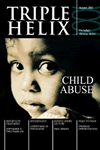This book takes a distinctively scriptural approach to the issues of death, dying and the ethical crisis in which we find ourselves in the early years of the 21st century. The biblical underpinning of our traditional ethical position is reviewed, the nature and origins of many of the recent changes are examined and the relevance of the gospel of the Lord Jesus Christ to these areas is well set out. It is refreshing to have such a clear foundation laid before the three primary issues of abortion, infanticide and euthanasia are examined in more detail. The link between these is well established and the grey areas of suicide, persistent vegetative state, eugenics and 'quality of life' are addressed with sufficient clarity for much of the 'greyness' to be dispelled.
Some of the legal principles are critically examined in the high profile cases reviewed, such as those of Anthony Bland, who was left in a persistent vegetative state following the Hillsborough tragedy, and John Pearson, a baby born with Down's syndrome who was rejected at birth by his mother and sedated until he died by the paediatrician looking after him. Set against the background of the Nazi holocaust experience, the sequence of events following the decriminalisation of euthanasia in the Netherlands is used to illustrate the progression of thinking there once principles were set aside.
Help and support in dying and bereavement are well handled. Palliative care and the hospice movement, so often led by committed Christians, are brought into focus not simply as an end in themselves, but as examples of positive alternatives to the 'Culture of Death'.
It is significant that this book has been released even as further efforts are being made to legalise euthanasia and assisted suicide. It is a most effective stimulus to Christian thinking in a field in which it is assumed so often that the Christian has nothing to say except to object to change. The chapter entitled 'So what must we do?' expresses well the concern that we must turn first to God. Only he can motivate, empower and resource his people. Only he can make it possible for us to care, educate, lead, assert truth and stand as witnesses to his way, his view of life and his salvation freely offered to all.
The Christian is thus challenged to avoid slipping into the current worldly mindset by standing clearly upon biblical ground when considering these critical issues. The healthcare professional is challenged to see life in a deeper and broader perspective and to consider the person as more than the vehicle for their pathology.
Reviewed byGeorge Chalmers
former Consultant Geriatrician and Clinical Director at the Glasgow Royal Infirmary. He is President of the Scottish Council on Human Bioethics































